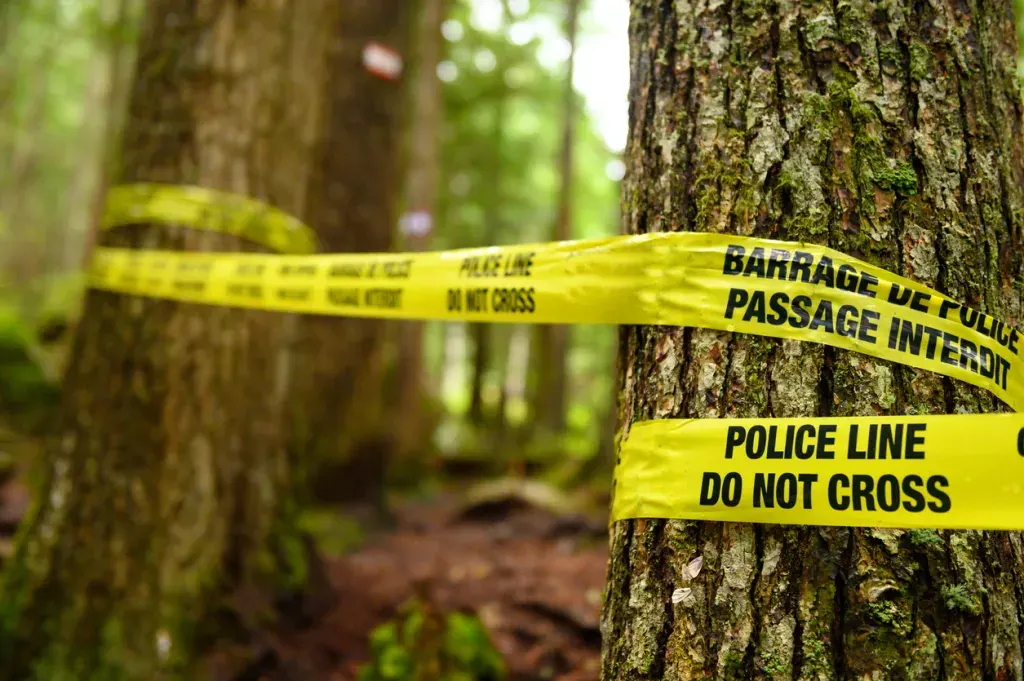A tragic incident in Vermont serves as a poignant reminder of the unpredictable forces of nature.
A man from Palmer was killed when a tree fell on his tent while he was camping. The tragic occurrence underlines the importance of understanding the environment and following safety guidelines when engaging in outdoor activities, especially camping.
The Incident:
A man from Palmer, Massachusetts, was camping in a forested area in Vermont when the unfortunate event occurred. A large tree, presumably weakened by recent weather conditions, fell directly onto his tent during the night, resulting in fatal injuries.
The immediate responders were local forest rangers, accompanied by medical professionals, who quickly arrived at the scene after being alerted. Despite their best efforts, the man could not be saved.
Such incidents, while rare, emphasize the unpredictable nature of wilderness and the need for campers to be vigilant and aware of their surroundings.

The Aftermath:
The local community and the Palmer man’s family are grappling with the shock of the sudden loss. This event has rippled through both communities, urging many to reconsider their own camping practices and ensure safety at all times.
The forested region in Vermont, known for its stunning beauty and tranquility, attracts thousands of campers every year. Yet, this incident serves as a grave reminder that nature, for all its beauty, has its own perils.
Camping Safely: Tips to Remember
While camping is a wonderful way to connect with nature and take a break from the hustle and bustle of daily life, safety should always be a top priority. Here are some essential tips to ensure a safe camping experience:
- Choose Your Campsite Wisely: Avoid camping beneath dead trees or branches. Look up and around your intended campsite. If you notice any trees that appear dead, diseased, or unstable, set up your tent elsewhere.
- Stay Informed About Weather: Check the weather forecast before you leave for your trip. Avoid camping during stormy or windy conditions, especially in areas known for falling trees or branches.
- Inspect Your Surroundings: Once you arrive at your camping spot, take a few minutes to inspect the area. Look for signs of recent tree falls, landslides, or other potential hazards.
- Stay Away from Cliff Edges: If you’re camping near cliffs or steep terrain, stay a safe distance away from the edge, especially during windy or rainy conditions.
- Secure Your Tent: Make sure your tent is well-anchored to the ground. This won’t protect you from falling trees, but it can prevent your tent from being blown away in strong winds.
- Avoid Camping Near Water During Rain: While camping next to a river or stream might seem idyllic, water levels can rise rapidly during heavy rainfall, leading to potential flood risks.
- Keep Emergency Supplies: Always have a first-aid kit, a whistle, a flashlight, and a means to communicate (like a fully charged phone with an extra power bank) in case of emergencies.
- Inform Someone About Your Trip: Before you head out, inform a friend or family member about your trip’s details, including your destination, your expected return time, and any check-in times you’ve established.
- Follow Park or Forest Guidelines: If you’re camping in a designated area, adhere to the guidelines provided by the forest rangers or park authorities.
- Consider Taking a Camping Safety Course: Various organizations offer camping and wilderness safety courses. These can be invaluable in preparing you for potential challenges and hazards.

Conclusion:
Camping can be an enriching and memorable experience, connecting us more deeply to the natural world. However, as the tragic incident in Vermont has shown, it is imperative to prioritize safety and be prepared for unforeseen risks.
By staying informed, choosing campsites carefully, and following established safety practices, campers can significantly reduce the risk of accidents and ensure a safe and enjoyable trip.
We’ll Help You Find the Best Free Camping in the USA
You should give it a try!
As a matter of fact, these free campsites are yours to enjoy. Every time you pay federal taxes, you’re contributing to these lands.
Become a FREE CAMPING INSIDER and join the 100,000 campers who love to score the best site!
We’ll send you the 50 Best Free Campsites in the USA (one per state). Access the list by submitting your email below: